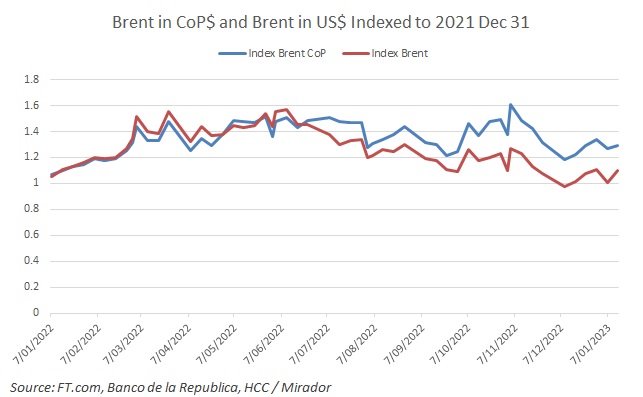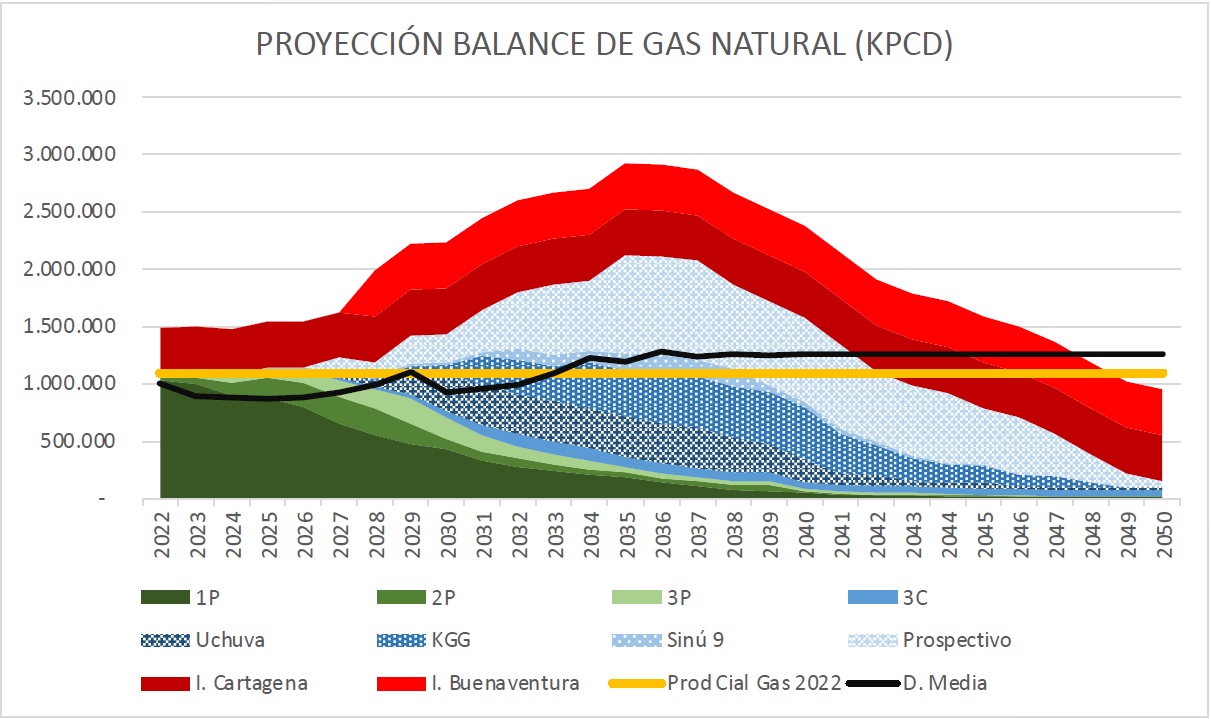
The departure of Belizza Ruiz from the Vice-Ministry of Energy (MinEnergia) generated a discussion regarding how long should ministers and vice-ministers stay in office.
The new year may bring spikes in oil prices due to a solid reopening in China and an eventual depreciation of the American dollar.
The Ministry of Mines and Energy (MinEnergia) is going through challenging times due to internal disputes and changes in key positions of the entity.
The government of Gustavo Petro presented its Financial Plan for 2023, with optimistic estimates for oil prices. This metric, however, is below expectations.
The outlook for new gas contracts is still uncertain, even though this fuel continues to be considered vital for Colombia’s energy security and transition projects.

Oil prices increased, once again, for the sixth consecutive day last week, boosted this time by a weakening dollar that makes the barrel cheaper for investors in other currencies.
The government of Gustavo Petro announced a plan for hydrocarbon exports. The plan would also include mining.

This chart comes from a MinEnergia study released just before Christmas. I would love this graph to be true. Really. No need for gas imports until 2042? Export capability until that time? Fantastic! Don’t get me wrong.
National business newspaper Portafolio recently interviewed National Environmental Licensing Agency head Rodrigo Negrete to understand his plans for the institution. He talked about having more rigor, decentralizing and alluded to formally including community feedback in the licensing process.
The Ministry of Mines and Energy (MinEnergia) confirmed upcoming changes in management and coordination positions at the Vice Ministry of Energy. Here are the details.